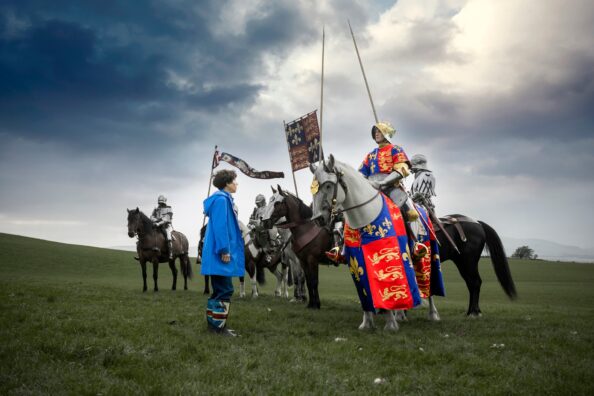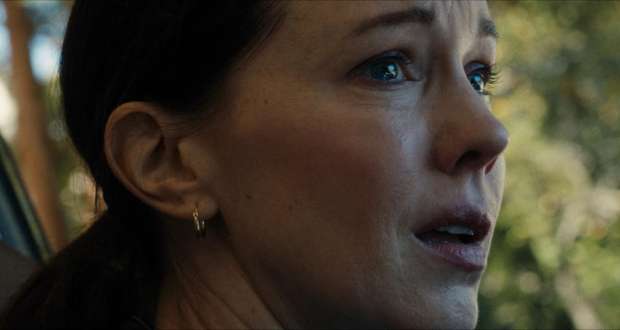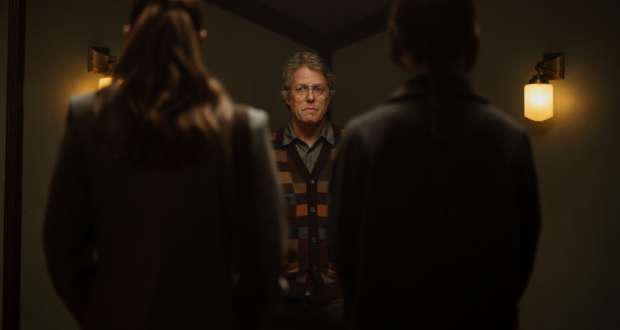“The Lost King” is the story of Philippa Langley and, as its synopsis says: “In 2012, having been lost for over 500 years, the remains of King Richard III were discovered beneath a parking lot in Leicester. The search had been orchestrated by an amateur historian, Philippa Langley, whose unrelenting research had been met with incomprehension by her friends and family and with skepticism by experts and academics. THE LOST KING is the life-affirming true story of a woman who refused to be ignored and who took on the country’s most eminent historians, forcing them to think again about one of the most controversial kings in England’s history”.
I remember when the newspapers of September 12, 2012, carried the news of the discovery of the body of Richard III buried beneath a parking lot in the town of Leicester in the U.K. I doubt if anyone not a resident of that particular city knew the behind-the-scenes story of how, exactly, Richard III came to be found, through the efforts of an obsessed member of the online Richard III Society, who would not give up her quest.
Ultimately, as scripted by co-star Steve Coogan in collaboration with Jeff Pope, it is a lovely tale with many messages for us in this age of disinformation. Coogan, it should be noted, also plays Philippa’s husband, John Langley, opposite the wonderful Sally Hawkins, the female lead from “The Shape of Water.”.
 The film makes the point that “if you get in first with the first lie, and repeat it often enough,” the truth gets lost in the shuffle. And Philippa, for one, does not like it when people put people down. She is determined to gather hard evidence to refute the bad things said throughout history about Richard III, especially in Shakespeare’s play of the same name. Philippa points out that “People find out one thing about you and that’s all that they can see.” She also informs us that it was Richard III over 500 years ago, who, during his brief reign (1483-1485) as the last Plantagenet king of England posited the principle of British law “suspects are innocent until proven guilty.”
The film makes the point that “if you get in first with the first lie, and repeat it often enough,” the truth gets lost in the shuffle. And Philippa, for one, does not like it when people put people down. She is determined to gather hard evidence to refute the bad things said throughout history about Richard III, especially in Shakespeare’s play of the same name. Philippa points out that “People find out one thing about you and that’s all that they can see.” She also informs us that it was Richard III over 500 years ago, who, during his brief reign (1483-1485) as the last Plantagenet king of England posited the principle of British law “suspects are innocent until proven guilty.”
Philippa’s family, consisting of John Langley (well-played by Steve Coogan, who also co-wrote the script with Jeff Pope) and her two sons, are at first bemused by Philippa’s obsession with her task. One of her sons says, “If I had 2 sons, I would first make sure they had something to eat before I went off searching for Richard III.”
The family comes around, however, even chipping in monetarily. Husband John reminds Philippa that he once sold his rare collection of Sex Pistols memorabilia to finance a new kitchen for her, so the affection the two share for each other and their children actually get a needed renewal and boost from Philippa’s new-found passion.
The entire idea that one’s reputation can be intentionally sullied because of the motives of others is examined within the framework of this film. Philippa feels that Richard III is not the monster Shakespeare made him out to be in his play, was not responsible for the murders of his nephews in the Tower of London and that researchers should “take the evidence and study it to draw conclusions, not the other way around.”
Husband John agrees in principle, saying, “I’m sure Mother Teresa occasionally left the lid off the milk and Genghis Khan occasionally picked up bits of litter.” So much for the character assassination of anyone at any time in history, and a vote for doing one’s homework in getting to the truth.
Ultimately, Philippa’s consulting with the University of Leicester, (much as was limned in the film “Nine to Five,”) leads to men taking the credit for work done by a woman. In this case, the University of Leicester, which was initially dismissive, tries to take almost complete credit for the remarkable find.
When it becomes clear that the body found under the car park in the chapel area of what was formerly Greyfriars Church really is Richard III, Philippa suffers from not being recognized for her hard work, but she is awarded the MBE by Queen Elizabeth in 2015.
Not only the head wound he sustained in the Battle of Bosworth (the last King of England to be killed in battle), but also the DNA examination of Richard’s successors done by John Ashton Hill, (not to mention the evidence of scoliosis of the spine) would all prove conclusively that this was his skeleton, the body of a former King of England. It disproved the incorrect theory that Richard III’s ashes had been scattered in a nearby river. Philippa then fought for the royal coat of arms to be emblazoned on Richard III’s final resting place, over the objections of others.
Stephen Frears who is a twice Oscar-nominated director and holds the David Lean Chair of Fiction Direction at the National Film and Television School in Beaconsfield is more than equal to the task of directing this thoroughly enjoyable film. I hope he scores a third Best Directing Oscar nomination for his efforts.
The 81-year-old Frears previously gave us “The Grifters” and “The Queen,” for which his directing was Oscar-nominated. He is also the visionary who directed “Dangerous Liaisons” (1988), “High Fidelity” (2000), and the Meryl Streep vehicle “Florence Foster Jenkins” (2016). The music (Alexandre Desplat and the London Symphony Orchestra) and cinematography (Zac Nicholson) all combine to create a seamless story with relevant messages for our time. It premieres on November 4, 2022.























